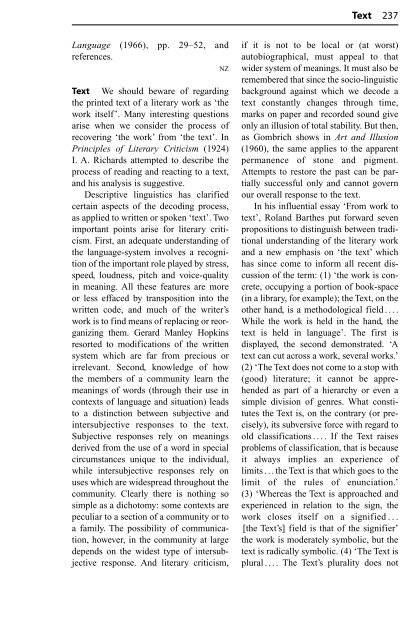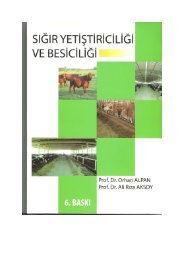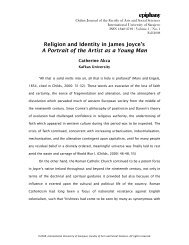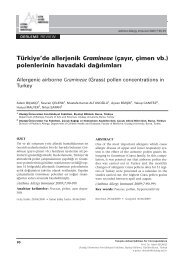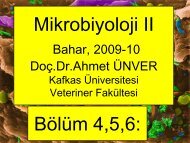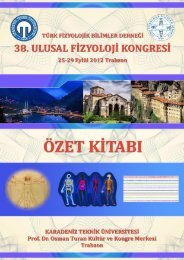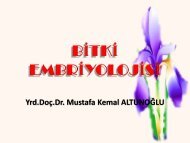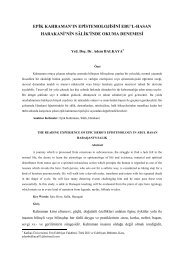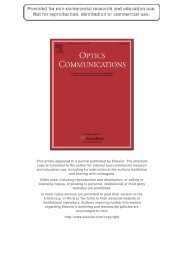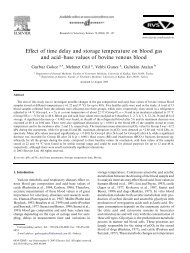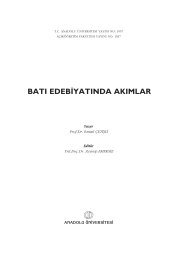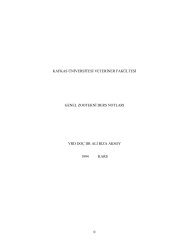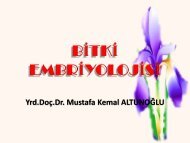The Routledge Dictionary of Literary Terms
The Routledge Dictionary of Literary Terms
The Routledge Dictionary of Literary Terms
Create successful ePaper yourself
Turn your PDF publications into a flip-book with our unique Google optimized e-Paper software.
Language (1966), pp. 29–52, and<br />
references.<br />
NZ<br />
Text We should beware <strong>of</strong> regarding<br />
the printed text <strong>of</strong> a literary work as ‘the<br />
work itself’. Many interesting questions<br />
arise when we consider the process <strong>of</strong><br />
recovering ‘the work’ from ‘the text’. In<br />
Principles <strong>of</strong> <strong>Literary</strong> Criticism (1924)<br />
I. A. Richards attempted to describe the<br />
process <strong>of</strong> reading and reacting to a text,<br />
and his analysis is suggestive.<br />
Descriptive linguistics has clarified<br />
certain aspects <strong>of</strong> the decoding process,<br />
as applied to written or spoken ‘text’. Two<br />
important points arise for literary criticism.<br />
First, an adequate understanding <strong>of</strong><br />
the language-system involves a recognition<br />
<strong>of</strong> the important role played by stress,<br />
speed, loudness, pitch and voice-quality<br />
in meaning. All these features are more<br />
or less effaced by transposition into the<br />
written code, and much <strong>of</strong> the writer’s<br />
work is to find means <strong>of</strong> replacing or reorganizing<br />
them. Gerard Manley Hopkins<br />
resorted to modifications <strong>of</strong> the written<br />
system which are far from precious or<br />
irrelevant. Second, knowledge <strong>of</strong> how<br />
the members <strong>of</strong> a community learn the<br />
meanings <strong>of</strong> words (through their use in<br />
contexts <strong>of</strong> language and situation) leads<br />
to a distinction between subjective and<br />
intersubjective responses to the text.<br />
Subjective responses rely on meanings<br />
derived from the use <strong>of</strong> a word in special<br />
circumstances unique to the individual,<br />
while intersubjective responses rely on<br />
uses which are widespread throughout the<br />
community. Clearly there is nothing so<br />
simple as a dichotomy: some contexts are<br />
peculiar to a section <strong>of</strong> a community or to<br />
a family. <strong>The</strong> possibility <strong>of</strong> communication,<br />
however, in the community at large<br />
depends on the widest type <strong>of</strong> intersubjective<br />
response. And literary criticism,<br />
Text 237<br />
if it is not to be local or (at worst)<br />
autobiographical, must appeal to that<br />
wider system <strong>of</strong> meanings. It must also be<br />
remembered that since the socio-linguistic<br />
background against which we decode a<br />
text constantly changes through time,<br />
marks on paper and recorded sound give<br />
only an illusion <strong>of</strong> total stability. But then,<br />
as Gombrich shows in Art and Illusion<br />
(1960), the same applies to the apparent<br />
permanence <strong>of</strong> stone and pigment.<br />
Attempts to restore the past can be partially<br />
successful only and cannot govern<br />
our overall response to the text.<br />
In his influential essay ‘From work to<br />
text’, Roland Barthes put forward seven<br />
propositions to distinguish between traditional<br />
understanding <strong>of</strong> the literary work<br />
and a new emphasis on ‘the text’ which<br />
has since come to inform all recent discussion<br />
<strong>of</strong> the term: (1) ‘the work is concrete,<br />
occupying a portion <strong>of</strong> book-space<br />
(in a library, for example); the Text, on the<br />
other hand, is a methodological field....<br />
While the work is held in the hand, the<br />
text is held in language’. <strong>The</strong> first is<br />
displayed, the second demonstrated. ‘A<br />
text can cut across a work, several works.’<br />
(2) ‘<strong>The</strong> Text does not come to a stop with<br />
(good) literature; it cannot be apprehended<br />
as part <strong>of</strong> a hierarchy or even a<br />
simple division <strong>of</strong> genres. What constitutes<br />
the Text is, on the contrary (or precisely),<br />
its subversive force with regard to<br />
old classifications.... If the Text raises<br />
problems <strong>of</strong> classification, that is because<br />
it always implies an experience <strong>of</strong><br />
limits...the Text is that which goes to the<br />
limit <strong>of</strong> the rules <strong>of</strong> enunciation.’<br />
(3) ‘Whereas the Text is approached and<br />
experienced in relation to the sign, the<br />
work closes itself on a signified...<br />
[the Text’s] field is that <strong>of</strong> the signifier’<br />
the work is moderately symbolic, but the<br />
text is radically symbolic. (4) ‘<strong>The</strong> Text is<br />
plural.... <strong>The</strong> Text’s plurality does not


